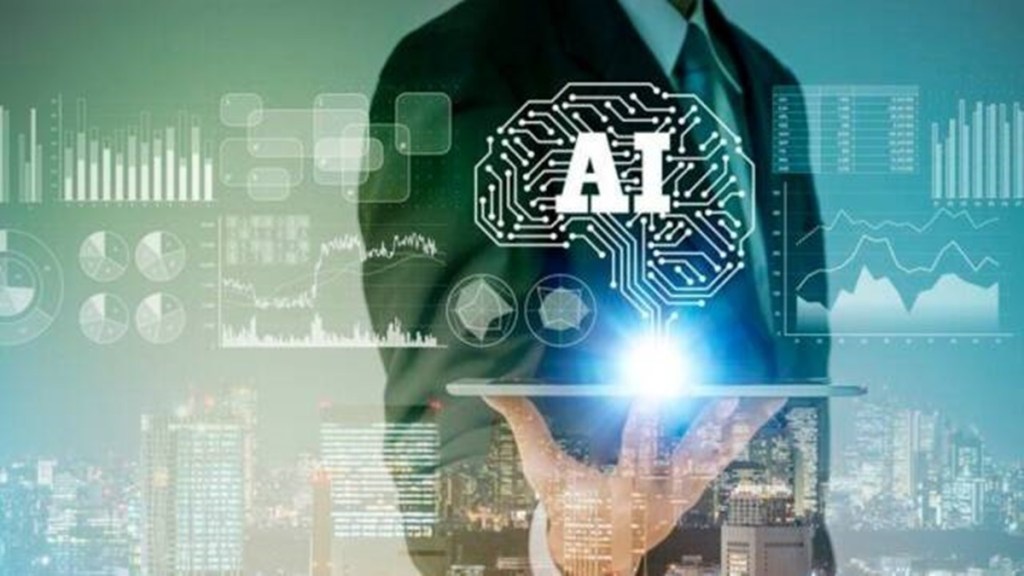By Naresh Grover
India has seen one of the fastest growth in the EdTech sector and this acceleration in growth has been catapulted by Covid 19 pandemic. From the traditional approach towards education, we have witnessed a big transformational change where technology has enveloped every aspect of education including the role of artificial intelligence (AI). The rapid advancement of AI has sparked a renewed interest in its application in education. The use of AI in education has shown great potential to revolutionize the way students learn and the way educators teach. However, the integration of AI in education has also raised ethical concerns that need to be addressed.
How are AI and Mental Health connected?
One of the ethical concerns of AI in education is the potential impact on mental health. Studies have shown that students who rely heavily on technology for learning, whether it is adaptive learning systems, digital text-books, or educational manuals are at a higher risk of developing analytical and creativity skills at a lower level and experiencing mental health problems, such as anxiety and depression. Therefore, educators need to be mindful of the impact of AI on students’ mental health and work towards finding ways to mitigate this risk.
Another ethical concern is the potential impact of AI on job opportunities. While AI has the potential to enhance teaching and learning, it also has the potential to replace human teachers and educators. This could have a significant impact on the job market for educators. However, studies have shown that AI is the most effective when used as a tool to assist teachers, rather than a replacement for them. Therefore, educators need to work towards finding ways to incorporate AI into their teaching methods without compromising job opportunities.
The reliability of technology is also a significant concern when it comes to AI in education. While AI has shown great potential in enhancing teaching and learning, it is not infallible. AI can make mistakes and may not always provide accurate information. Therefore, educators need to be vigilant when using AI in the classroom and ensure that they are not relying solely on technology to provide students with accurate information.
Will AI become a necessary evil?
Despite these ethical concerns, the use of AI in education has the potential to significantly improve the quality of education. For example, AI can provide personalized learning experiences that cater to individual student needs. AI can also help teachers by automating basic activities including assessment, and automated grading of students to identify areas where students are struggling and provide targeted support to help students overcome these challenges and furthermore, to identify the areas of student strength. AI-based Adaptive learning programmes may enhance individualized/personalized learning.
Furthermore, the use of AI in education can also improve access to education for students who may not have had access to traditional learning methods. For example, AI can provide remote learning opportunities for students who live in rural areas or who have disabilities that make it difficult to attend traditional classroom settings. Platforms like Coursera are using AI platforms to provide the immediate feedback to the students on their submitted assignments rather than waiting for the teacher to provide the feedback.
The major tasks including the creation of smart content, demonstration of concepts through visualizations, simulation, and virtual and augmented reality in the classrooms could be optimized by the teacher using AI to provide more real-time teaching-learning experiences to the learners and teachers as facilitators. More personalized blended learning can be incorporated through AI-powered tools including virtual personal assistants and chatbots. AI technologies possess the potential to open up the possibilities of interaction with a group of specially-abled students.
Finally, in the words of David Warlick, “We need technology in every classroom and in every student and teacher’s hand, because it is the pen and paper of our time, and it is the lens through which we experience much of our world.” While the use of AI in education raises ethical concerns, its potential to revolutionize the way students learn and the way educators teach cannot be ignored.
The author is pro-vice chancellor of Manav Rachna International. Views are personal.
Follow us on Twitter, Facebook, LinkedIn
